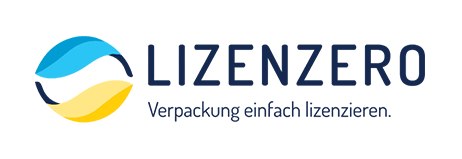What does circular economy actually mean?
Sustainability, environmental protection, resource conservation: these and similar buzzwords have become increasingly important to society in recent years. Because we feel that a future worth living in is not possible without new approaches to solving these issues. The term circular economy comes up again and again in this context.
But what exactly does the circular economy mean? What contribution can it make to environmental protection? And what does circular economy have to do with the Packaging Act (VerpackG)? In the following we explain what we at Interseroh+ understand by the term circular economy, what we are doing to promote it and why circular economy can only become an even more effective contribution factor for climate protection if everyone gets involved.
Content
- Circular economy: For a world without waste
- How dual systems promote the circular economy
- Contribution to climate protection: It can only work if everyone gets involved
Circular economy: For a world without waste
At Interseroh+ we understand a functioning circular economy as follows: In contrast to the throwaway economy (resources are only used once and then disposed of), the circular economy is concerned with the reuse of the resources used so that they can be made continuously useful to the economy and used repeatedly. It is therefore about:
- the avoidance of waste that cannot be reused,
- long-lasting use of products,
- the full recycling of raw materials at the end of a product's life cycle, and
- and the use of recycled raw materials in the manufacture of new products.
A functioning circular economy can save valuable primary raw materials. Keeping raw materials in the cycle is thus understood as an effective way to counter climate change: For example, the processing and reuse of raw materials has significantly lower greenhouse gas emissions than the production and use of primary raw materials.
For example, recycling aluminium consumes only 5 per cent of the energy needed to produce new aluminium from bauxite. At the same time, each tonne of recycled aluminium saves up to 10 tonnes of CO² emissions compared to new production (source: Fraunhofer UMSICHT).
Against this background, we consider an efficient circular economy to be an essential solution for combating climate change in the long term.
How dual systems promote the circular economy
The dual systems in Germany make a major contribution to the functioning of the circular economy, as they are responsible for the disposal and recycling process of the sales packaging waste generated in this country. They ensure the return and recycling of this packaging and prepare the raw materials in marketable quality so that they can be returned to the economic cycle.
Interseroh+ is working on new, innovative concepts to make the path to a more sustainable future as easy as possible for its customers. Under the slogan "zero waste solutions" we think circular economy new and further in order to improve the sustainability performance of our customers in the long term. Through our extensive measures, we make a noticeable contribution to climate protection together with our customers and partners: Interzero was able to save 336,050 tons of greenhouse gas emissions in 2019 alone through the recycling of lightweight packaging (source: Fraunhofer UMSICHT). Further details on Interzeros measures can be found on the Interzero website under "Sustainability".
Contribution to climate protection: Only if everyone pitches in can it work
The circular economy can only contribute to combating climate change if all parties take action together. In the area of packaging recycling, this means that consumers, companies and the dual systems must work together to save valuable resources.
In order to be able to fully recycle the different packaging materials, it is imperative that packaging waste is correctly separated and disposed of in end-user households. Even though Germany is considered a pioneer in waste separation, there are still major misunderstandings among the population. This is why the dual systems joined forces last year and launched an educational campaign: "Waste separation works" exposes misconceptions and myths about waste separation and shows how packaging is separated correctly. This is because the correct disposal of packaging waste is the basic prerequisite for a functioning circular economy - educating and creating broad knowledge among the population is therefore essential.
In addition, it is indispensable that the distributors of packaging waste take their product responsibility seriously: By licensing their packaging in accordance with the Packaging Act, they participate directly in the recycling of their packaging. This is because the licence fees paid finance the disposal and recycling process of the packaging waste, so that companies make a valuable contribution to the circular economy through their participation in a dual system.
The final step is taken over by the dual systems by collecting, sorting and recycling the packaging. In order to return as many raw materials as possible to the economic cycle, the dual systems must ensure increased recycling rates for the packaging materials by 2022. The Packaging Act makes this mandatory for them. For example, the mechanical recycling rate for plastic was still 36 per cent in 2018; this will be increased to 63 per cent by law from 2022.
It shows that only together can we achieve a world without waste. Through correct waste separation on the part of consumers, the financing of the disposal and recycling processes by the companies that bring waste into circulation, and the fulfilment of the increased recycling quotas by the dual systems, the circular economy can already make an important contribution to climate protection, both now and in the long term.
Sources:
Sustainability Magazine 2019
Interview between Prof. Dr. Günther Bachmann and Markus Müller-Drexel
Interzero references
Interzero Responsibility & Strategy



